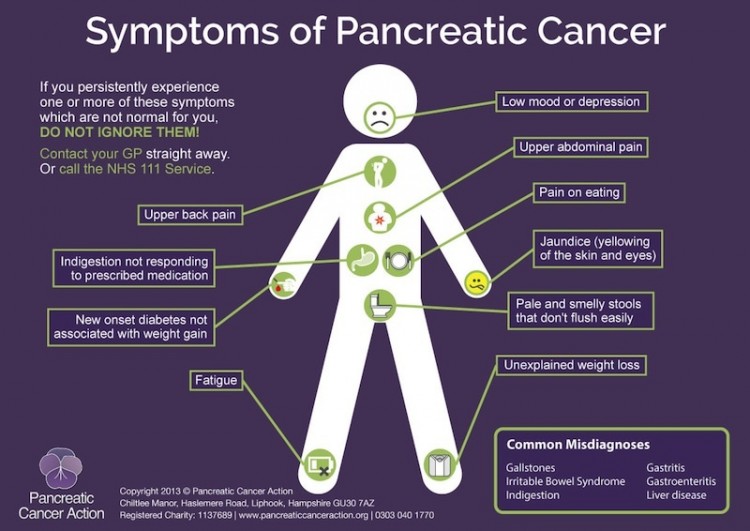New ‘chemotherapy booster’ could treat lung and pancreatic cancer
A new drug that blocks cancer’s escape route from chemotherapy could be used to treat deadly lung and pancreatic cancers, new research reports.
Scientists have shown in human cancer cells and in mice that the drug - discovered at The Institute of Cancer Research, London - boosts the effectiveness of conventional chemotherapy.
The drug, known as CCT245737, is scheduled to begin first-in-human clinical trials in patients with lung and pancreatic cancers - two cancers with low survival rates that continue to resist currently available treatments.
The new study is published in the journal Oncotarget, and was funded by Cancer Research UK and Sareum Limited.
The research, conducted at The Institute of Cancer Research (ICR) in collaboration with colleagues at the drug discovery company Sareum and Newcastle University, shows the effectiveness of a new class of drugs called CHK1 inhibitors that can be delivered orally to patients.
Most chemotherapies work by damaging the DNA of rapidly dividing cells. But in response, cancer cells activate a molecule called CHK1 which delays cell division and gives cancer cells time to repair their damaged DNA.
 Scientists hoped that blocking CHK1 could stop cancer cells from repairing DNA damage and prevent them from becoming resistant to the cell-killing effects of chemotherapy.
Scientists hoped that blocking CHK1 could stop cancer cells from repairing DNA damage and prevent them from becoming resistant to the cell-killing effects of chemotherapy.
Researchers developed techniques to assess the method of action of CCT245737 in human cancer cell lines, and demonstrated that it potently blocked the molecule CHK1.
They also assessed CCT245737 in combination with chemotherapy in mice with tumours grown from human cancer cell lines, and found it achieved much greater anti-cancer activity than chemotherapy alone. Importantly, the mice did not experience any additional toxicity of the combined drugs.
Researchers also found that the CHK1 inhibitor could be used alone, without additional chemotherapy, to treat a type of blood cancer called lymphoma because this cancer type sustains heavy DNA damage during its formation.
It is possible that CHK1 inhibitors such as CCT245737 - which was designed and synthesised at the ICR with funding from Cancer Research UK - could be used on their own to treat other types of cancer with similar levels of DNA damage.
The intellectual property associated with the project was licensed to the CRT Pioneer Fund (CPF) who are now working with Sareum, to take the project into Phase I clinical trial before commercialisation.
Professor Ian Collins, Professor of Medicinal Chemistry at The Institute of Cancer Research, London, said:
“We’re excited that our new CHK1 inhibitor, which was discovered at the ICR in collaboration with Cancer Research UK and Sareum, is progressing towards first-in-human clinical trials.
“By using CHK1 inhibitors with chemotherapy, we block one of cancer’s escape routes and prevent tumours from evading the effects of treatment. We hope that clinical trials of our new drug will show it to be an effective chemotherapy booster in lung and pancreatic cancers, which readily become resistant to current treatments.”
Dr Tim Mitchell, CEO of Sareum Limited, said:
“The publication of CCT245737 data in this high-impact journal will bring what we believe to be a best-in-class drug candidate to the attention of our peers and potential licence partners. The preclinical studies are progressing well and we look forward to providing an update with our final results.”
Dr Phil L’Huillier, Cancer Research Technology’s director of business development, said:
“The CRT Pioneer Fund was set up to help bridge the funding gap between the lab and the clinic and we’re delighted that this investment from CPF and Sareum means a promising molecule is now ready for clinical trials. Lung and pancreatic cancers have some of the lowest survival rates of any cancer type, so we hope this vital injection of cash and resources will mean patients can benefit from this research sooner.”
###
Notes to editors
For more information contact Claire Hastings, Media Officer at the ICR, on 020 7153 5380 / .(JavaScript must be enabled to view this email address). For enquiries out of hours, please call 07595963613.
The Institute of Cancer Research, London, is one of the world’s most influential cancer research institutes.
Scientists and clinicians at The Institute of Cancer Research (ICR) are working every day to make a real impact on cancer patients’ lives. Through its unique partnership with The Royal Marsden NHS Foundation Trust and ‘bench-to-bedside’ approach, the ICR is able to create and deliver results in a way that other institutions cannot. Together the two organisations are rated in the top four cancer centres globally.
The ICR has an outstanding record of achievement dating back more than 100 years. It provided the first convincing evidence that DNA damage is the basic cause of cancer, laying the foundation for the now universally accepted idea that cancer is a genetic disease. Today it leads the world at isolating cancer-related genes and discovering new targeted drugs for personalised cancer treatment.
As a college of the University of London, the ICR provides postgraduate higher education of international distinction. It has charitable status and relies on support from partner organisations, charities and the general public.
The ICR’s mission is to make the discoveries that defeat cancer.
###
Claire Hastings
.(JavaScript must be enabled to view this email address)
020-715-35380
Institute of Cancer Research